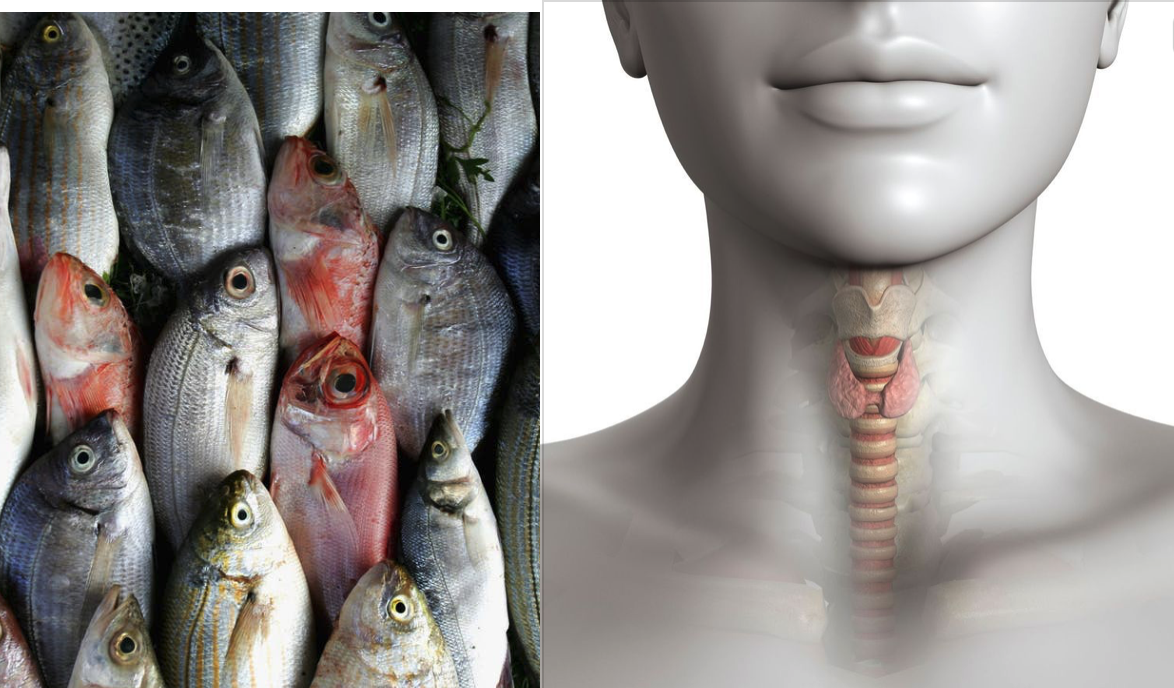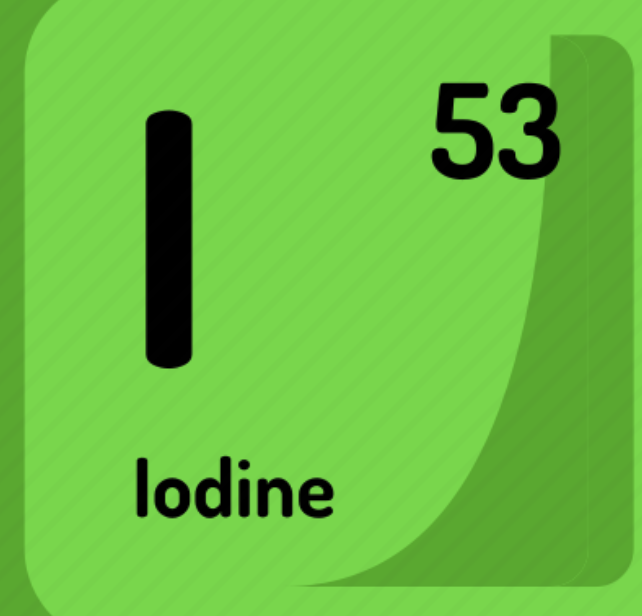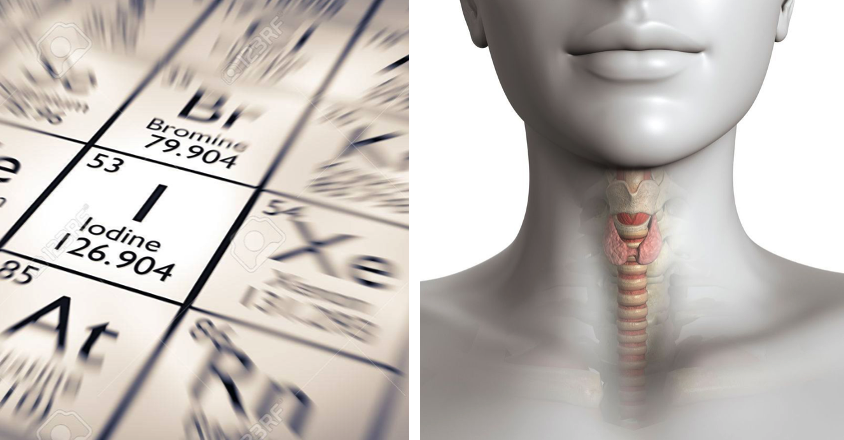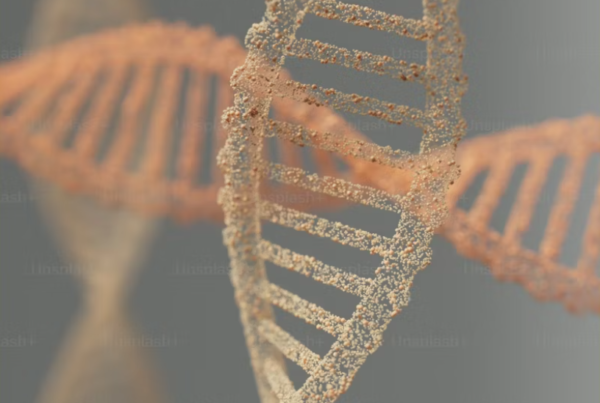Iodine is a vital mineral for the human body, and one of the most abundant micronutrients in seawater. It accumulates in algae, fish and shellfish. By contrast, there is little iodine in the soil of countries far from the sea.
In the past, iodine deficiency caused serious mental and physical problems, such as goiter, short stature, mental retardation, deafness and dumbness. But since the 1920s, government policies introduced iodized table salt to address the problem of iodine deficiency, starting with Switzerland, which had a high number of people with cretinism.
Iodine deserves great attention because its role is essential for our health. A good level of iodine helps regulate the thyroid, a small butterfly-shaped gland, located at the base of the neck, which greatly influences our hormonal system. Our metabolism depends on the proper function of the thyroid gland, which is also the gland of emotions, the gland that helps with brain function, related to memory and concentration, associated with digestion, hair and nails, sleep and the feminine cycle.
Number 53 on the Mendeleïv table, iodine is a halogen that plays an essential role in the formation of thyroxine, the primary thyroid hormone. A goiter forms when there is an iodine deficiency as the thyroid gland swells in an attempt to capture as many iodine molecules as possible. But an excess of iodine not absorbed by the body can also cause goiter.

Although having studied iodine and its effects on health through training and books, it was not until I acquired the SoCheck oligoscan that I was able to verify how many people have a deficiency, and to see the positive effects of supplementation.
The SoCheck oligoscan measures levels of minerals, trace elements and heavy metals, and this allows me to understand the interactions between different minerals, trace elements and also the impact of endocrine disruptors. Everything is linked in the mineral balance and several factors inhibit the absorption of iodine by the thyroid. For example, fluorine, chlorine and bromine, three other hallogens, bind to the thyroid receptors more quickly than iodine, which means that the latter cannot be absorbed.
Iodine protects the thyroid from pollution by endocrine disruptors, known for their ability to modify hormonal communication. Heavy metals (mercury, lead), plastics (phthalates, PCBs), brominated flame retardants can accentuate an iodine deficiency, leading to more harmful effects for the body.

Certain foods can also act as inhibitors of iodine uptake: broccoli, all forms of cabbage (consumed raw), radishes, turnips, mustard seeds, and soy isoflavones. For this reason, you may be recommended to consume these products in moderation if you have hypothyroidism.
Low iodine levels can cause fatigue, hair loss, insomnia, digestive disorders, weight problems and hormonal cycles. Other disorders linked to a deficiency include hot flushes, cardiac arrhythmia, bone demineralization, allergies, morning depression or constipation can be linked to a lack of iodine.
Book a SoCheck oligoscan assessment to check your iodine levels as well as other trace elements and vitamins. Food rebalancing, micronutrition advice and lifestyle adjustments will help you find your way back to optimal health.





